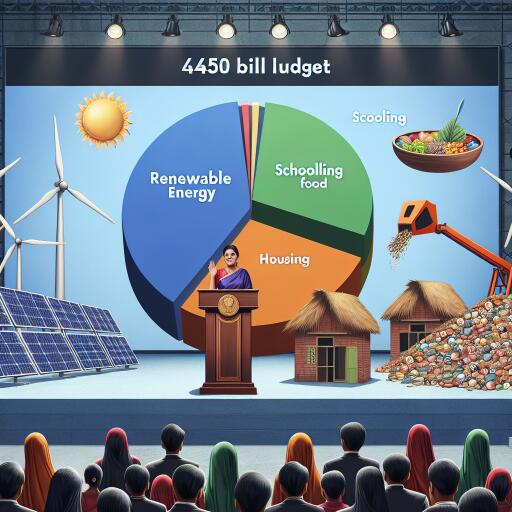
FG Budgets N450 Billion for Renewable Energy, Poverty Reduction, Says Minister
In a bold move to tackle poverty and enhance energy accessibility, the federal government has allocated N450 billion towards renewable energy initiatives, as well as other poverty alleviation measures. This announcement was made by the Minister of Humanitarian Affairs and Poverty Reduction, Professor Nentawe Yilwatda, during a prestigious national budget roundtable held at Covenant University, Ota in Ogun State.
The event, which focused on how national budgeting can effectively reduce poverty and inequalities amidst global energy transitions, brought together experts and academics to discuss transformative fiscal policies. The discussions painted a clear picture of the current socioeconomic landscape, citing troubling statistics from the 2022 National Multidimensional Poverty Index. The index reveals that an alarming 63 percent of Nigerians, approximately 133 million individuals, live in multidimensional poverty. Within this statistic, a staggering 42 percent fall under extreme poverty, and around 85 million citizens still lack access to electricity—a crucial utility that intertwines with the nation’s poverty levels.
Professor Yilwatda highlighted the critical impact of energy poverty on the nation’s development. Without reliable access to electricity, business growth is stunted, educational outcomes diminish, healthcare suffers, and inequalities widen. In response, the federal government has apportioned N200 billion specifically for the development of renewable energy infrastructure.
The investment doesn’t stop there. An additional N150 billion has been allocated to bolster the expansion of diversified energy systems, including solar, wind, hydro, and coal-based solutions. The objective is clear: to provide electricity access to five million households by the close of 2025. This ambitious plan seeks to transform the energy landscape, ensuring stable and affordable power for millions.
Moreover, N100 billion is set aside to elevate the skills of 250,000 Nigerians in renewable energy technologies. Such training is pivotal for fostering a vibrant green economy and catalyzing the creation of sustainable jobs. The minister emphasized that this green transition extends beyond mere energy access. It is a comprehensive approach addressing employment, education, and broad-based economic inclusion. By tapping into smart, innovative job opportunities, the initiative aims to empower underserved communities across the nation.
The federal government also remains committed to its existing poverty reduction strategies, such as the conditional cash transfer program, which targets 15 million households. Currently, over five million Nigerians reap the benefits of these transfers, with recipients meticulously identified via the national social register and digital ID systems.
Concluding his address, Professor Yilwatda announced a future-forward vision to generate two million additional jobs. This will involve enhancing skills and opportunities for both unemployed and underemployed Nigerians, aligning them with burgeoning private sector roles.





Leave a Reply